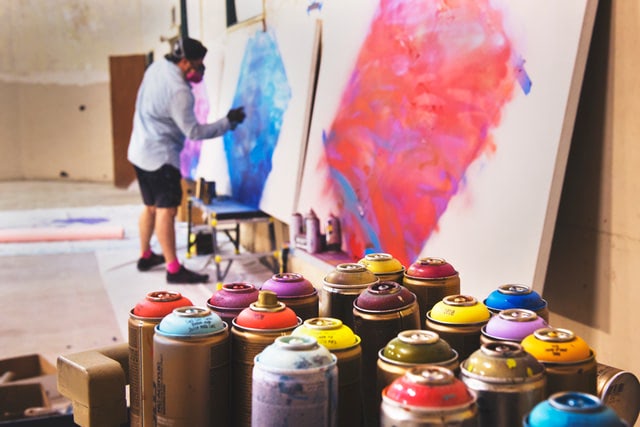Encouraging Artistic Talent: Why Creative Arts Matter and Need to be Taught

The government regularly explains just how important arts and creative education is. MPs have lobbied to change legislation to make arts education more integral to the curriculum it doesn’t seem to be translating into action or interests from students. The University and Colleges Union has reported significant reduction in students choosing the creative arts at A-Level and beyond and this does post the question, is creative education falling behind the times? Are we losing a generation of artists?
Art Teachers Key to Future Artists’ Success
It has been suggested that studying the arts doesn’t require the same intellect as science and maths-based subjects and that the arts may be less “commercially useful”. Research such as the 2016 study The Fusion Effect actually found companies who combine arts and science disciplines saw a 8% higher sales growth than science only firms.
A love for art is about personal passion but also fed by quality teaching and tutoring. Art teachers have the ability to inspire their students, but they also need to help students recognise the link between further education arts courses and a career they can achieve and be proud of.
Why Students Should Consider Art Courses
Students with an interest or talent for art, whether that’s sculpture, photography, videography, or traditional painting, should be encouraged to explore their interest. The benefits of choosing the arts are plentiful and students could benefit from a range of improved skills.
Art students and those passionate about art develop emotional intelligence and a self-starter attitude. Those with artistic talent and entrepreneurial talent may be able to combine their skills to launch their own business or move effectively up their chosen career ladder.
As already mentioned, arts students help their company’s sales figures when working alongside science students or graduates, meaning their skillset blends well with others. Steve Jobs was known for saying his success was down to hiring artists and musicians with a love for technology, rather than pure computer science specialists. Art is a subject where students who may not be able to find themselves in traditional examination environments can flourish and their skills can be honed into their own style and something others may appreciate and in time, purchase.
Art meets Digital
As arts are all about personal expression, then there is no falling behind for arts students and graduates. As the world is digitised, their art can reflect this and the ever-changing and adaptable nature of art also applies easily to the digital world, making arts trained students a great addition to digital teams and tech companies (like Jobs said!). Supporting the arts doesn’t mean disregarding STEM and technical education and there are many overlaps especially due to digitisation and our increasingly online lives.
Encourage Art A-Level and Further Education
Schools with attached sixth forms should look to invest in their arts departments as much as is possible. Teaching staff should use all their power to show their students just how valuable arts education can be and how it could be the beginning of an amazing career or a unique business.
(Image source: https://unsplash.com/photos/hrm0hf8pCdU)

Responses